
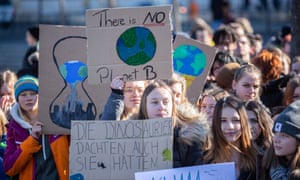
Brianna Fruean, 20, Samoa: In the south Pacific, we’re already having cyclones, floods and droughts
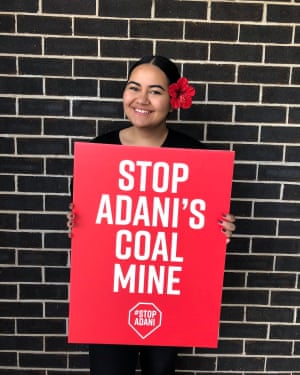
I started my activism quite young – at 11. That was when I first heard about this thing called climate change. As a young girl in Samoa, a small island in the south Pacific, hearing the implications it had for my island scared me and jumpstarted my passion to do something about it.
I feel like the young people of the Pacific are now experiencing what young people around the world will experience tomorrow. Right now, along with a lot of other vulnerable communities around the world, we’re having cyclones, floods and droughts. And it’s going to be that – and worse – for future generations.
It’s great to see young people being passionate and not backing down to older people saying: “You should be in school.” Real education sometimes happens outside the classroom. I think the school climate strikes have proved that. I learned about hope and solidarity outside the classroom. All my friends know about Greta Thunberg, who has stayed strong and hasn’t backed down. I really think that she is going to do great things for this generation. It’s that solidarity that keeps you optimistic. And feeling that you have a team, that you’re not alone, that we’re all in this together. It’s not just one person yelling from outside the UN building or our parliament. And where there are mass numbers, there’s power. Our slogan is: “We’re not drowning. We’re fighting.”
Lovina, 15, and Delema Janvier, 17, Alberta, Canada: As indigenous youths we have a close connection to the Earth
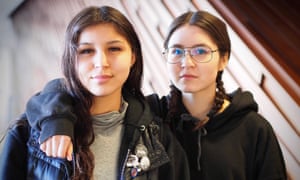
We strike for the Earth, to protect and save it from what the human race has done. As indigenous youths we have a close connection to the Earth. We know that without it we have nothing, we are nothing. Our community is directly affected by the Cold Lake oil sands, which is a large deposit of tar sands. Some of the tar sands can be extracted through drilling, which is incredibly dangerous to land, animals and people, and affects the water and air quality in negative ways. We must think of the future generations: what we do today, tomorrow and the next day will impact the next seven generations. We must change our ways from burning natural resources, from releasing so much carbon, from poisoning what we need to live. We cannot survive by drinking oil.
Harshini Dhara, 15, Hyderabad, India: There were no rains on our farm, so we couldn’t cultivate any crops
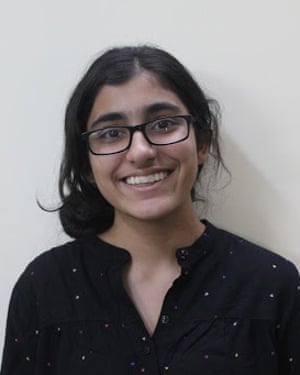
For as long as I can remember, I have heard climate change talked about at home. The phenomenon scares me and leaves my future uncertain. Many of our country’s rivers are snow-fed. Due to the melting of glaciers, the rivers of northern India will initially carry flood waters, but as their source of water continuously depletes, they will carry less water, and shortages may lead to conflict between people.
On a personal level, there were no rains on our farm last year so we couldn’t cultivate any crops. A few things can be done by children of my age to hopefully secure our future. We can encourage the planting of more trees and use public transport as far as possible to reduce our emissions. I feel that a subject so serious should be introduced to children at school, and teachers and children should openly talk about it – and the adverse effects of climate change should be shown to children by taking them on field trips.
Eyal Weintraub, 18, and Bruno Rodriguez, 18, Argentina: We organised a protest in front of the national congress in Buenos Aires
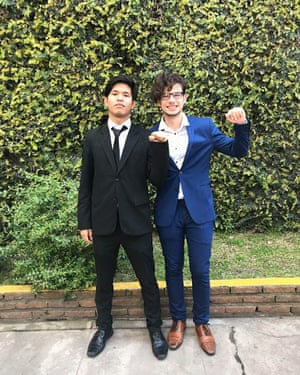
We saw a call to action circulating on social media, encouraging youth to stand up and fight against the indifference of governments and the criminal behaviour of contaminating corporations. What we needed to do was clear. We decided to organise a protest in front of our national congress in Buenos Aires.
The most extraordinary aspect of this movement is realising the unlimited potential of our generation. We have reached a point in history when we have the technical capacities to solve poverty, malnutrition, inequality and of course global warming. The deciding factors for whether we take advantage of our potential will be our activism, our international unity and our ability to develop the art of making the impossible possible. Whether we succeed or not depends on our political will.
Vidit Baya, 17, Udaipur, India: We want global leaders to declare a climate emergency
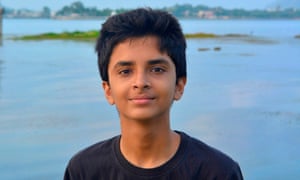
In the winter of 2018 I went to march on the streets of Melbourne with a group of amazing, diverse people of all ages to urge the Australian government to take action against climate change. When I came back to India, I started an organisation called No Borders and wrote an article regarding climate change here in India that was quite popular among my schoolmates and teachers. Then there was no stopping us.
Today, young people from all over India will strike for a sustainable future. We will tell our politicians that our lives are more important than the economy. You talk about jobs and better living conditions when you yourself are not ready to change for a sustainable future. We want global leaders to declare a climate emergency. If we don’t act today, then we will have no tomorrow. Adults have given us an ailing planet – and it is now up to us to understand that, and to turn the ailing planet into heaven again.
Zel Whiting, 13, Australia: I don’t blame all adults: the truth has been kept from them
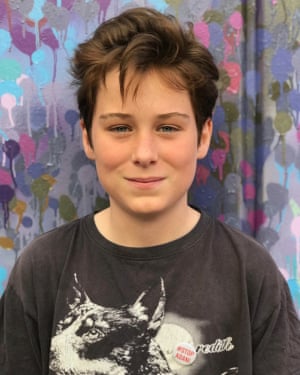
In October 2018, I helped organise a strike in my hometown. Initially my goal was to help bring attention to the plight of our living planet. But after the climate strike got public attention, politicians began attempting to discredit us, rather than addressing the reason for our protest. It then became clear to me that our leaders are too corrupted by the corporate world to address the most threatening issue to humanity. They are incapable of accepting that clever accounting is not a solution.
The school strike is merely the final alarm for people to wake up and have a good hard look at what has been happening. Sure, listen – but listen critically. Listen to the language our leaders are using to downplay what is happening and then go and read the science, and look at things. Take a good hard look.
I don’t blame all adults: the truth has been kept from them. But we now know what’s happening and the next logical step is for governments at every level to declare a state of climate emergency so that immediate action can be taken to prevent catastrophic outcomes.
Kaisanan Ahuan, Puli City, Taiwan: Our traditional culture is deeply rooted in harmony with the spirit of nature
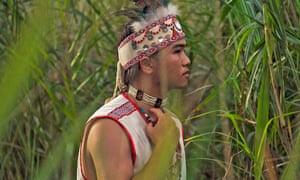
I am from the Central Taiwan Plains Indigenous People. As the indigenous people of Taiwan, we have a particular vulnerability to climate change. Our traditional culture is deeply rooted in the harmony we have with the spirit of nature. We face heartbreaking loss due to increasingly extreme weather events. We urge the Taiwanese government to implement mitigation measures and face up to the vulnerability of indigenous people, halt construction projects in the indigenous traditional realm, and recognise the legal status of Plains Indigenous People, in order to implement environmental protection as a bottom-up approach.
Anastasia Martynenko, 20, Kiev, Ukraine: When our children ask ‘What have you done for our future?’ we will have an answer
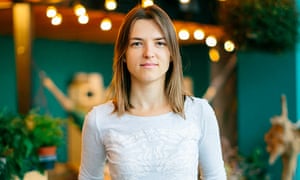
My friends and I heard for the first time about Greta Thunberg and her climate strike in the autumn of 2018. Then we had the idea to hold a similar action in Ukraine: we invited other youth and students to join us in Kyiv and all together demand from our politicians a new future without climate change. We also got adult supporters. After two weeks, five other Ukrainian cities joined us in organising actions and will also be coming out to protest today.
I and like-minded people are happy to be the driving force of change among young people, because when our children ask us, “What have you done for our future?”, we will have an answer .
Arya Dhar Gupta, 13, Gurugram, India: I don’t want to wear a face mask for the rest of my life
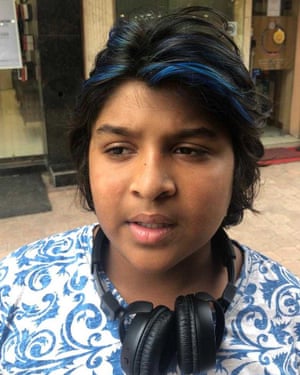
My country lives with the shame of having 14 of the 15 most polluted cities in the world. How can I not host the strike in Gurugram, labelled the city with the worst air quality in the world in a recent report? I am 13 years oldand I have seen things get really bad, really quickly over the past five years. My school forces us to wear face masks and regularly calls off our sports activities and playtime due to air pollution. My parents don’t allow me to play outside on most days, for my safety. While I am asthmatic,two years ago, I had a near-death experience from an asthma attack. I don’t want to live in a mask for the rest of my life. I don’t want to have a family or children in a place where I have to constantly worry about my health and the health of my loved ones. The writing is on the wall and the time to act is now.
Dona Van Eeden, 21, Cape Town, South Africa: Difficult choices have to be made
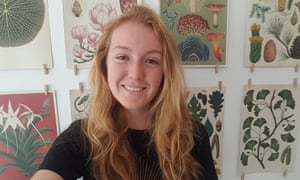
I think we all feel the pressure, the uncertainty and the complexities of the reality we live in. I understand that difficult choices have to be made without any certainty of the outcomes. But the time to hesitate, to experiment and to deny is long gone.
I want to be certain that our government is committed to investing in a just transition to a more sustainable country, that we will lower carbon emissions and curb climate change. I am joining this strike to demand that decisions are more future-focused and that policy will reflect our environmental rights as written in our constitution.
Isao Sakai, 17, Japan: When climate change becomes ‘our issue’, it may be too late
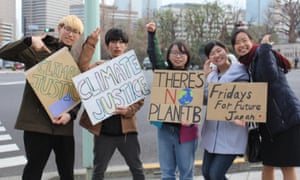
Two years ago, I was just a high-school student in Tokyo, ignorant and uninterested in climate change. I knew that global warming showed up in the textbooks , but I had no idea that it would affect my life in any form.
It was eye-opening to discover how severe the current climate situation is when I took an environmental science class. I realised that the cycle of global warming accelerates between rising greenhouse gas emissions and rising global average temperatures. This very simple fact made me think that if someone does nothing about it, global warming would become unstoppable. Then I thought, if someone has to deal with it, why don’t I just do it myself?
In Tokyo, people still lack awareness about the urgency of climate change. I fear that when climate change becomes “our issue” for us city dwellers, it might be too late to address.
I want students in Japan to know that our future is under threat from climate change. Opening the eyes of people who are blind toreality is what I need to work on in Japan.
Veshalin Naidoo, 22, Cape Town, South Africa: We demand a South African version of the Green New Deal
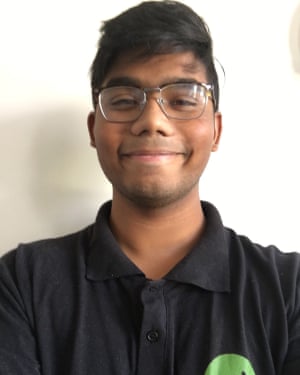
As a student I am no stranger to strikes, I have witnessed the changes they can bring about. There is a dire need for change in South Africa’s governance from an environmental standpoint. We as citizens need to demand that our politicians prioritise our country’s environmental wellbeing. We want our leaders to value reducing our massive carbon footprint over economic gains. We are calling for a moratorium on all new coal, oil and gas mining licenses. We want our leaders to develop and implement a plan of action that will see all fossil fuel harvesting and usage in South Africa to cease and renewable energy sources be implemented as our primary and eventually only energy supply. We demand this plan be part of a South African version of the Green New Deal. We want schools and other centres of education to implement a climate adaption education programme and be spaces of environmental concern and awareness as these spaces shape what values are instilled in our future leaders and society.
We cannot save our world, continent or country alone. Thus we stand with school strikers across the globe and inspire everyday people to care,
Nsiang-Wen Yueh, Taiwan: If a student with a disability can start a climate movement in Europe, so can we in Taiwan
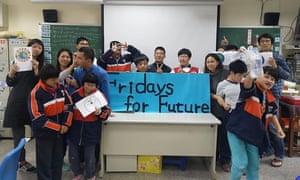
I am from the National Taichung Special Education school and I thought that if a student with a disability can start a climate movement in Europe, so can we in Taiwan. We are sitting outside the campus front door today to echo the global school climate strike movement. With the support of the teachers, we want to inspire others in Taiwan as we call for action from adults.
This can range over a wide spectrum of areas such as energy, food, biodiversity, plastics and more. TFrom just one person, we are seeing the number of participants rising all the time.
Mone Fousseny, 22, Mali: I have seen the balance of nature change here
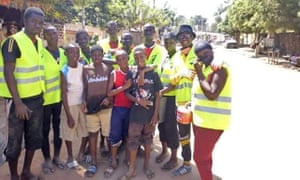
My awareness about climate change goes back a long way: my uncle was a farmer and taught me about the beauty and fragility of nature. Over time, as the torrential rains became more and more frequent, and led to floods, I saw the balance of nature change, and it is quite natural that I wanted to engage.
The damage done by multinationals is enormous: the lack of transparency, dubious contracts, the weakening of the soil, the destruction of flora and fauna, the lack of respect for mining codes, the contamination of groundwater. In Mali, the state exercises insufficient control over the practices of the multinationals, and it is us, the citizens, who suffer the consequences.
I want to tell the people of planet Earth, regardless of race, colour or religion, that we are all concerned and responsible for global warming. The climate alarm has sounded, and the time has come for us all to realise that there is still time to act locally, in our homes, our villages, our cities.
The Guardian

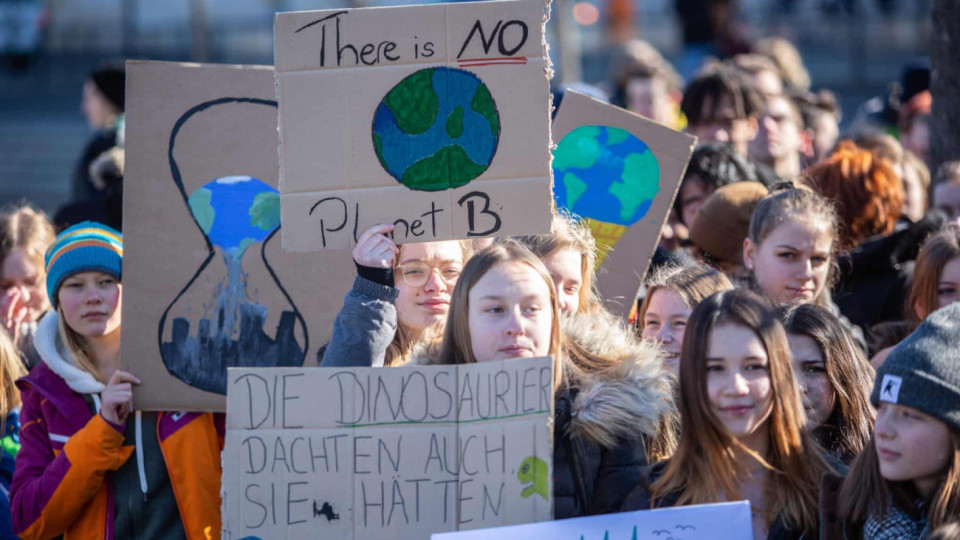
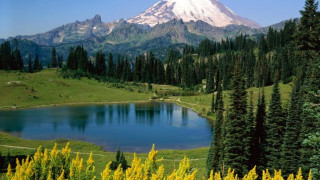
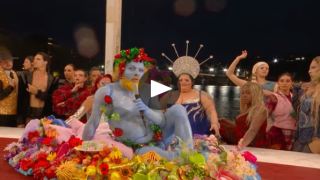
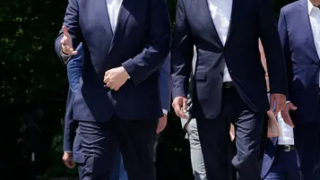

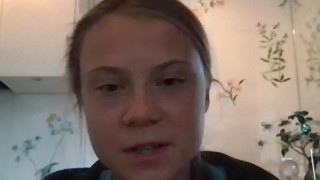




Leave a comment